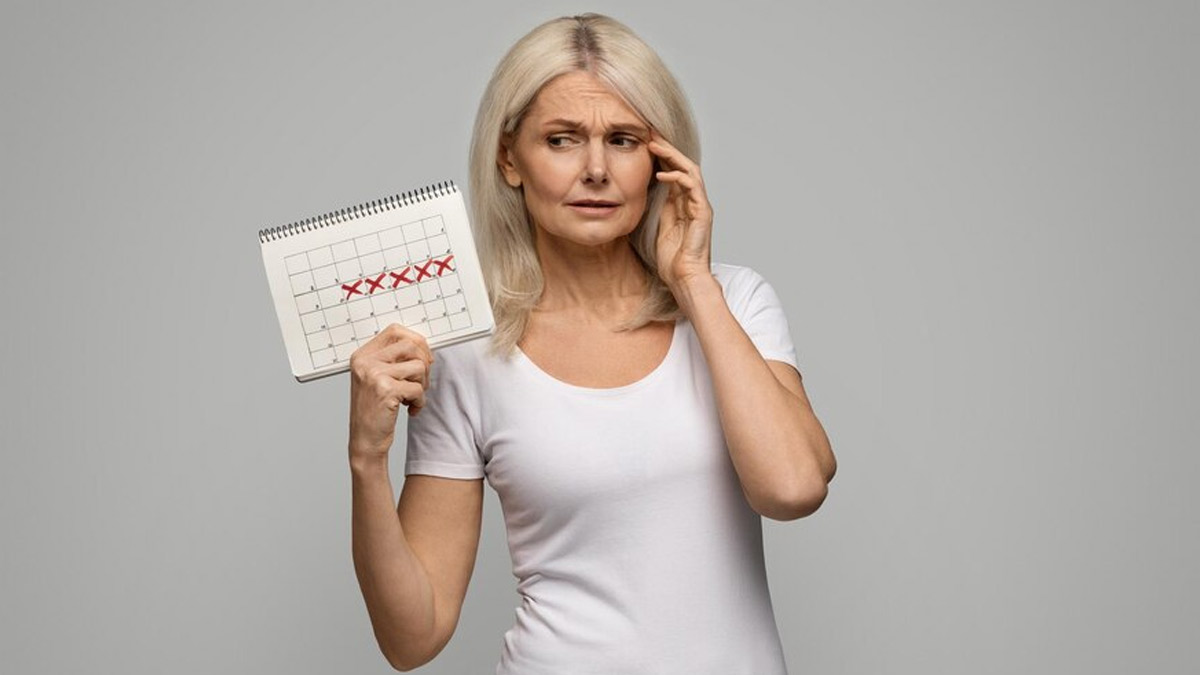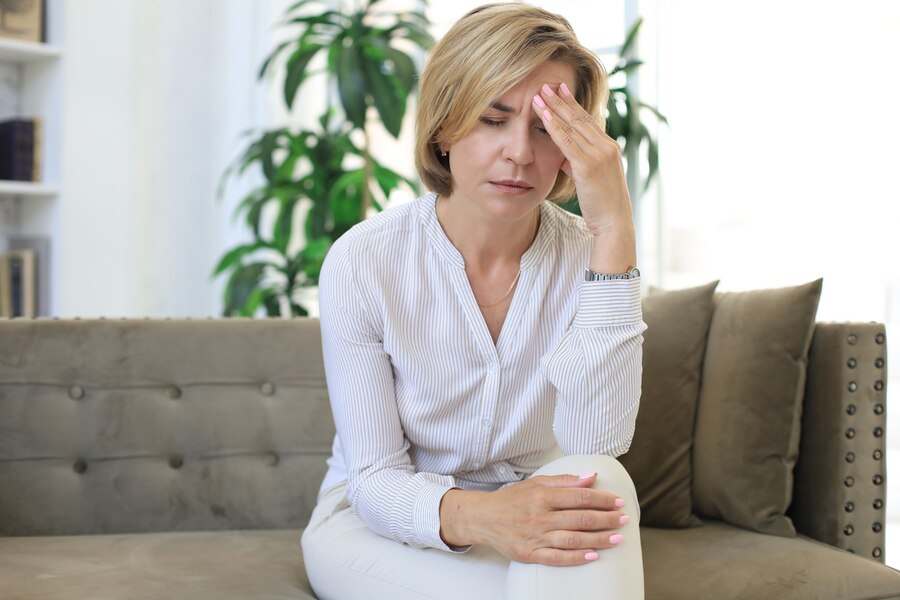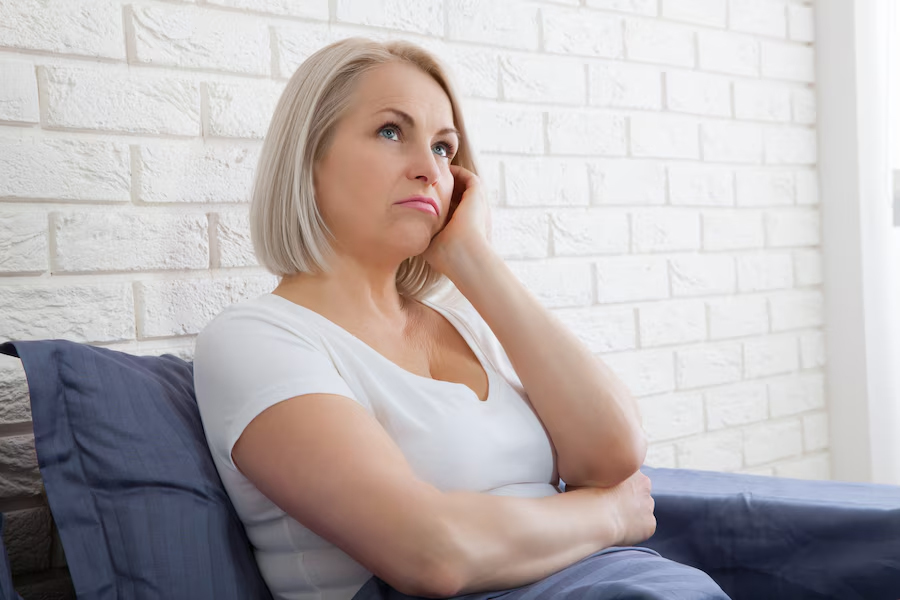
Just as menstruation marks a significant milestone in a woman’s reproductive life, so too does menopause. While the former signifies the beginning of a woman's reproductive journey, the latter marks its end. According to the World Health Organization (WHO), menopause is defined as the absence of menstruation for 12 consecutive months without any other obvious physiological or pathological cause. Most women experience menopause between the ages of 45 and 55, although some may encounter it earlier, even before the age of 40.
Table of Content:-
Similarly to how young girls may have questions when they first experience menstruation, women entering menopause often have many doubts. To address some of the most common questions about menopause, the OnlyMyHealth team spoke with Dr Ranjana Becon, Consultant Gynaecologist at Manipal Hospital, Ghaziabad, and also explored effective ways to manage severe menopause symptoms. Here's everything you need to know.
Also Read: Premature Menopause: Understanding Health Risks And Symptoms To Watch Out For
What Are The Early Signs Of Menopause?

During menopause, hormonal changes are inevitable. A woman's body produces less of the hormones oestrogen and progesterone, which can affect physical, emotional, mental, and social wellbeing, according to the WHO. This hormonal shift is therefore responsible for various symptoms, including:
- Hot flashes
- Night sweats
- Irregular or infrequent periods
- Vaginal dryness
- Painful sexual intercourse
- Urinary incontinence
- Changes in mood
- Depression and anxiety
Menopause can also lead to difficulty sleeping, which may in turn make you feel tired and irritable during the day, adds Dr Becon.
One may also experience loss of libido or reduced sex drive, and sometimes people may feel like weeping or may cry for no reason.
Can Lifestyle Changes Help Manage Symptoms?
The short answer is yes. Lifestyle changes can help manage menopause symptoms.
Citing an example, Dr Becon says, "Ladies who exercise regularly are healthier overall, and they might experience reduced menopausal symptoms, like hot flushes."
"Yoga, along with deep breathing exercises and massages, are very beneficial. Additionally, a good diet, proper stress management, and quitting smoking can also aid in managing common menopausal symptoms," she adds.
In one study published in the journal Medicina, researchers looked at the link between physical activity and menopausal symptoms in Polish women aged 40–65 and found that women who engaged in regular physical activity, especially leisure activities, tended to have less severe menopausal symptoms compared to women with lower physical activity levels.
How Can Women Manage Severe Menopause Symptoms Effectively?

When it comes to menopause, the symptoms may vary from person to person. While some women may experience mild changes, others may experience severe symptoms.
According to Dr Becon, these symptoms are a natural part of the menopausal process and may include hot flashes, insomnia, urinary incontinence, osteoporosis, weight gain, mood changes, vaginal dryness, and hair loss. In some cases, chronic conditions such as Cardiovascular Disease (CVD) may also become more pronounced.
During the perimenopausal phase, irregular menstruation is common. Other symptoms that women may experience include headaches, night sweats, atrophic vaginitis, depression, sore breasts, joint and muscle pain, bone loss, fatigue, decreased libido, sexual dysfunction, recurrent urinary tract infections, mental health issues, and cognitive changes.
Again, it's important to note that not all women will experience every symptom, and the severity can differ widely. The doctor advises that for those dealing with moderate to severe symptoms, it’s crucial to seek medical advice promptly. Treatment options, such as Hormone Replacement Therapy (HRT), may be recommended depending on individual needs and suitability.
Also Read: Hormone Replacement Therapy To Relieve Menopausal Symptoms: Pros & Cons
How Does Hormone Replacement Therapy (HRT) Work?
As per StatPearls Publishing, HRT is a form of supplementation for women who do not produce enough hormones, like oestrogen and progesterone, during the menopausal transition. This is what leads to various symptoms like irregular periods, hot flashes, mood changes, and vaginal dryness.
In fact, 2023 research published in the Canadian Medical Association Journal suggests that HRT is an effective first-line treatment for menopausal women who don’t have risk factors.
However, Dr Becon says that the benefits and risks of HRT may vary depending on factors such as age, menopausal symptoms, and individual risk factors.
She explains that for women under 60 who experience menopausal symptoms and are not at high risk for breast cancer or blood clots, HRT can offer significant benefits. It can relieve symptoms such as hot flashes, night sweats, sleep disturbances, anxiety, low mood, and vaginal dryness. Additionally, HRT helps prevent osteoporosis by maintaining oestrogen levels, which is especially important if menopause occurs before age 45.
However, HRT is not without risks, the doctor adds. She says that it can increase the risk of breast cancer and blood clots and may not be suitable for women with a history of breast cancer. It can also elevate the risk of stroke, and for women with an intact uterus, HRT may also lead to vaginal bleeding.
What Are The Treatment Options For Women Experiencing Severe Symptoms?

In addition to HRT, women experiencing menopause can also explore other treatment options, which include topical hormone therapy, including creams, inserts, gels, and patches, says Dr Becon. These can be used to target specific symptoms, like vaginal dryness.
Furthermore, non-hormonal medications, such as those prescribed for depression or blood pressure, can also help manage symptoms like hot flashes, the doctor shares, adding that nerve drugs and selective oestrogen receptor modulators (SERMs) may assist in alleviating hot flashes and vaginal dryness by helping the body use its oestrogen more effectively.
According to her, medications for osteoporosis are also available, as menopause increases the risk of bone loss. However, it is crucial to remember that alongside these treatments, lifestyle changes are highly recommended.
Maintaining a healthy weight, practising yoga, deep breathing exercises, and getting regular massages can significantly ease symptoms, says Dr Becon, concluding that a balanced diet, rich in a variety of foods, can also contribute to overall well-being during this time.
Also watch this video
How we keep this article up to date:
We work with experts and keep a close eye on the latest in health and wellness. Whenever there is a new research or helpful information, we update our articles with accurate and useful advice.
Current Version
